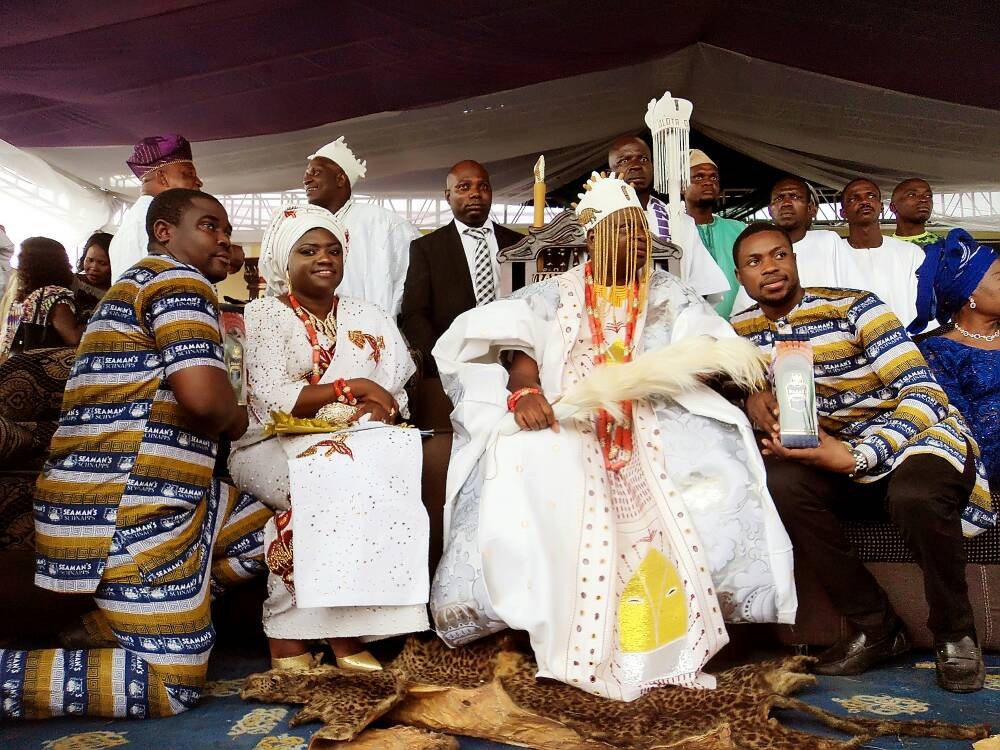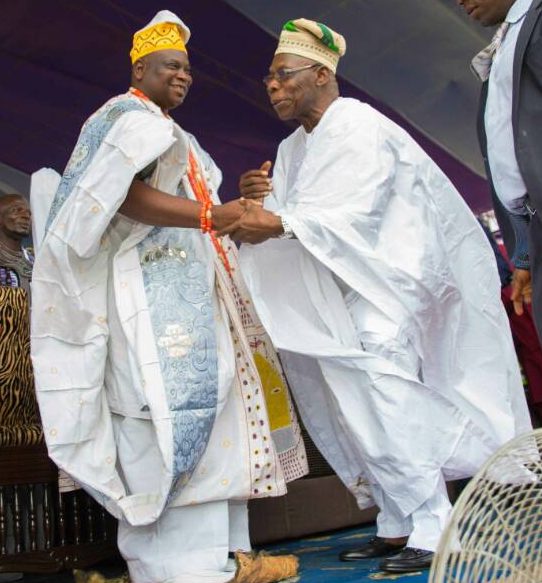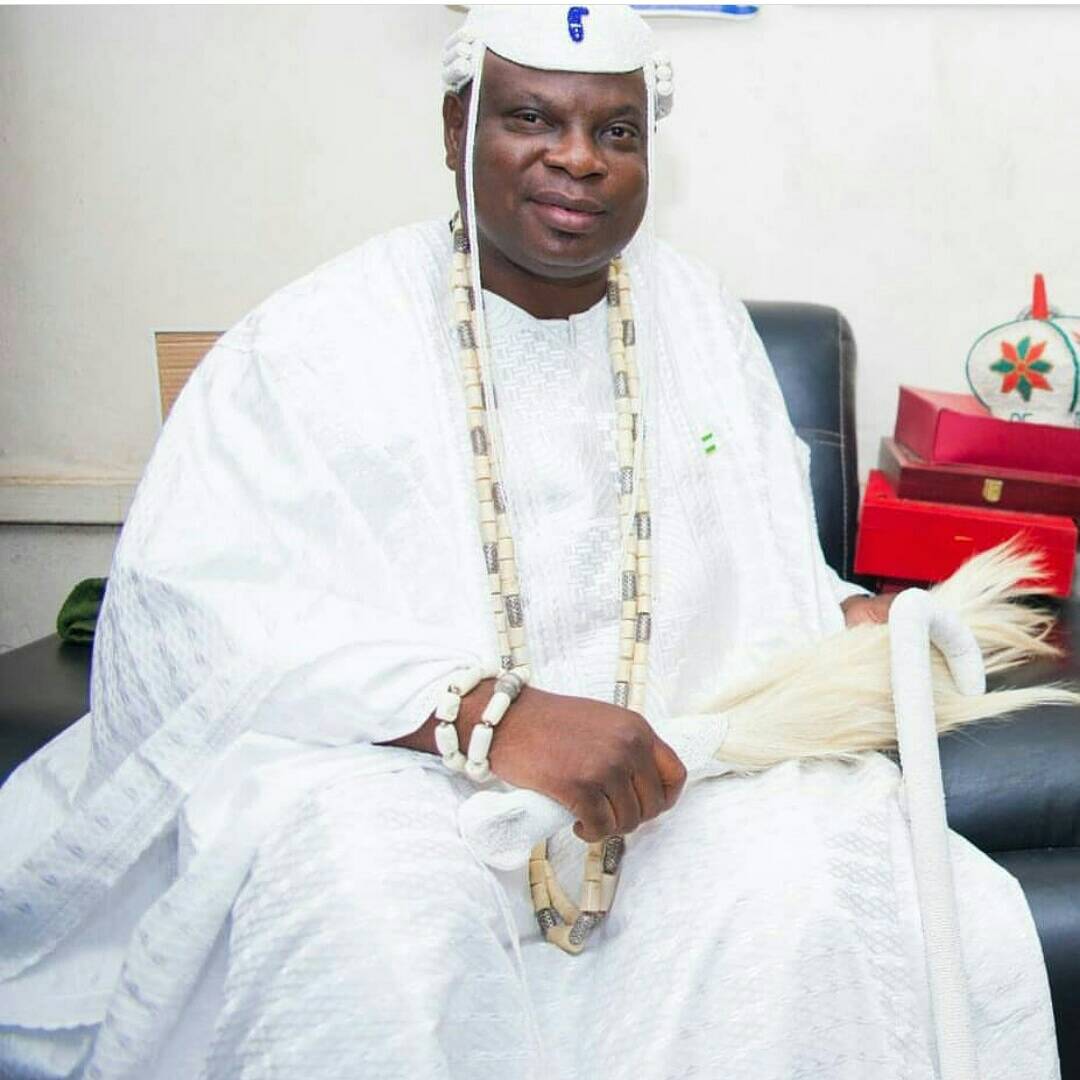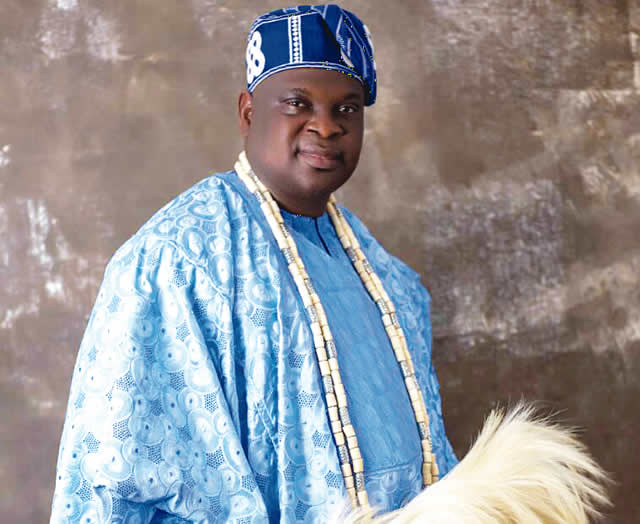His Royal Highness, Oba Adeyemi Abdulkabir Obalanlege, is a year on the throne of the Olota of Otta. For one who was in the academia, it is quite an experience suddenly becoming a monarch. He speaks with SAKIBU OLOKOJOBI on what it means to be a traditional ruler, what he used to enjoy in the academia that he no longer has the privilege to. He also speaks on his transformation agenda as Olota of Otta and his efforts to promote the tradition and culture of his people. Excerpts:
We congratulate you on the occasion of your one year coronation anniversary. It is believed that it takes one to be on the throne to experience what it truly means to be a king. What is it like being a king sir?
To be an Oba is a kind of leadership calling whereby you have to ensure peaceful co-existence within your town, city or domain in order to bring about development. The position is somehow like that of the mayor of a town where you have to ensure that businesses thrive, people feel better, public utilities are in order and people are able to feel the dividend of democracy.
You came from the academia to being a traditional ruler. What is the experience of the transition like?
I think it is strange moving from the academia to being a traditional ruler. However, you would agree with me that we learn every day. There is never a time you stop learning in life. Moving from the academia to being a traditional ruler gives me the opportunity to easily identify so many things lacking in my domain. This is as a result of the ability to discern and the experience acquired as a result of one’s academic background. The academic background gives me the know-how to fix, especially, the problem of security. Let me say that many of our youths are unemployed, and when you have almost half of the population unemployed, definitely the crime rate will rise. With my collaboration with security agencies, we have been able to reduce the level of crime in Otta city very well. This, I believe, we are able to achieve because of my ability to collaborate with the Nigeria Police Force, the Navy and the NSCDC. I actually allocated an office to the NSCDC within the town. This area I allocated to the NSCDC used to be an area where most of the criminals hibernated to smoke Indian hemp. But when the NSCDC operatives moved in, they had to relocate. We also went after them and they had to relocate. Sometimes, I call the police in Abeokuta to send a unit to raid some of the dark spots in the city. We have been able to do that several times and as a result, we have been able to dislodge most of the criminals and they have relocated to other parts of the state and Lagos State.
We have also been involved in award ceremonies where investors and people that have played prominent roles, who are non-indigenes were given key to the City of Otta. We used this means to encourage them to continue to invest in Otta and to do the good things they have been doing. This is going to be a yearly event. We had it during Iganmode Day. Iganmode Day is the day we set aside to celebrate our cultural heritage and our ancestors. We have been able to attract people, particularly indigenes who have been away for a long time to come back home. We have been able to build a sense of belonging among my people. We all know that we have to love ourselves and build this city together.
How has the academic aspect of your life affected your position as a monarch?
Because of my academic background, I am exposed to so many things. My exposure is not limited to Nigeria but beyond the country. I studied in Belgium, UK and Ireland. I also worked as a lecturer in UK. So, it has exposed me to so many things and all these help shape the way I carry myself as a traditional ruler. My academic background informs my contributions to discussions among traditional rulers. It has helped a lot. I look at issues from different perspectives before reaching conclusions. I attribute this to my academic background and exposure to different facets of life. Again, I have taken the institution of traditional rulers to a higher level, coming in as a professor. The institution has been bastardised by politicians, but with someone like me coming onboard, politicians cannot push me around. I don’t allow anybody to push me around. I do what I believe is good for my people. Royal fathers should assure people when they need it and intervene when it is necessary. You have to make sure that justice is done and the ordinary people are not oppressed. These are some of the roles of a royal father.
What has been the response of the people of Otta to your reign so far?
My people love me. They have access to me because I operate an open door policy. Whenever they have challenges, I come in and when it is necessary, I can actually intervene.
You are barely a year on the throne. What do you miss leaving the academia?
I’m still in the academia. I still lecture. The only thing I miss is my freedom. It is unlike when I used to mingle among friends and colleagues and went everywhere. Now, there is a limit to what I can do. I’m a bit reserved now. I don’t do things the way I used to do them before. I miss my freedom a lot. However, having said that, I am happy to be serving humanity. As a Rotarian, all my life I have been serving humanity. I was a Rotaractor as far back as my secondary school days. I am now a Rotarian. I love serving people. I am happy doing what I am doing now.

You said you still lecture. How do you combine that with being a monarch?
I want to give back to the society; I want to give back to this country, having been abroad to study and work in three universities in the United Kingdom. Back in the country, I think I should give back. I see it as a responsibility to bring up upcoming journalists. Outside the country I taught journalism. Doing the two doesn’t give me any problem.
Where do you lecture?
I lecture at Crescent University. I was a lecturer at the Crescent University before I became the Olota of Otta. I still do it and get paid. I must point it out that it is not because of the money but because of my desire to offer or give back to the society in the area of journalism as a profession in Nigeria.
How does your role as a traditional ruler affect your role as a lecturer and how do the students relate with you?
They respect me a lot. They want to learn from me. They ask questions. I talk to them. Anytime I tell them I am coming, they are always there waiting for me. But I only teach postgraduate students. As a professor and monarch, I don’t take undergraduates. I take postgraduate students. They are not many.
Apart from coming from a royal family, as a child, were there inklings or prophesies that you would be a king?
The only thing I would say is that when I was young and in higher institution, people called me Oba (king). Though I come from a royal family, my lifestyle was close to that of a politician than that of someone cut out for the role of an Oba. But by the time it came and the people said they preferred me for the post of Olota of Otta, I thought it was a joke until it became a reality. It dawned on me that that was the way Allah wanted it. I never schemed for it; I never lobbied for it, but when people of repute started saying “you are the one we want” I did not have a choice. I told them I never prepared myself for this. I told them that if I knew I would be an Oba, I would have perhaps not studied up to PhD level. I would not have bothered myself, but sit down in Otta and learn about the culture and some other things. But so far so good, I have been able to pick a lot of things. I thank God for being so good to me. I thank God for surrounding me with people like friends, chiefs and others, that are able to offer positive advice. I thank God that I have good people around me.

How well have you been able to develop Otta since you came on board about a year ago?
I have been able to do so many things. In the past the streets of Otta used to be dark. But today, it is now lit at night. It is lit with solar-powered street light. You can see the palace. It is undergoing construction. We are also building new police station for Ota. We had never had a police station. That is part of my initiative. In the area of security, Otta is secure. We have also empowered our youths and carried out some training programmes. We have trained them in shoe-making, tailoring, hair dressing and other skills with which they could fend for themselves.
Tourism is considered to be a good money making venture which we have not really tapped into in Nigeria. Do you have such attractions that could draw tourists?
We have lots of tourists attractions. One is the Ijamido Waterfall, but it has not been well taken care of. We are looking at reviving it. We want to keep it tidy and transform it to a good tourists’ destination. The second storey building in Nigeria is right here in Otta. It is where the Bible was translated into Yoruba. There are still some other attractions in the city. We have a tourism committee in the local government. It is led by Prince Fadina. I have been encouraging them to try as much as possible to develop those destinations in Otta so that we can attract visitors. That is ongoing.
What are you doing to promote the culture of the people of Ota?
We are Aworis and we have a very rich culture. We are one of the leading Oduduwa descendants from Ile Ife that moved to this part of the country. We are trying to promote our cultural heritage through different means. One, as I had said, is the Iganmode Day.
Isese which is a celebration of the cultural heritage or tradition of the Yoruba is believed to be generally characterised by violence in some instances. What is your reaction, Kabiyesi, considering that many are seeking for a declaration of public holiday for it?
Isese is not characterised by violence. It does not come with violence in my domain. Last year, I attended the ceremony, and it was peaceful. We enjoyed ourselves. Isese is the celebration of our cultural heritage; it is part of our ways of life. We will continue to do it because it is the way our fathers have brought us up. There is nothing wrong with Isese. I want to promote it to be a full blown festival in Otta. I think we should go back to our root. When you look at what happens these days, when you look at our youths, you realise that everything has been westernised. There is no moral any longer. With Isese, you respect your elders, the elders carry out their responsibilities to the young ones. It balances the society and makes things work out normally. Isese is a means through which we curb westernisation of the culture.
How well can Isese be used to promote our culture?
Every year now, we celebrate Isese Day in Ota. We invite our youths and others in the community. The Egungun (masquerade) are called out to display; the Akogun also come out; the Gelede and others come out to perform. It is usually a beautiful sight to behold. One can’t be tired of the wonderful sights created. Also on display are our herbs and people are taught how to use them for different ailments. Isese is helping us to revive our culture.
How best can traditional rulers contribute to the general development of the nation?
Traditional rulers have to be responsible and live by example. They have to carry their people along in terms of developing the society. They should also reward those that are helping the community. This can be done through motivation by awarding chieftaincy titles. Chieftaincy titles should not be awarded for monetary gains. No! Look at what individuals have done for the community and reward them by giving chieftaincy titles.

You lecture journalism. What is your opinion about the way journalism is practised in Nigeria today?
In Nigeria today, you find out that you don’t carry out investigate journalism. I blame that on lack of funding. Most of the media organisations are not willing to fund journalism. All they want is to maximise profit without investing in investigations or journalism in general. Gone are the days reporters are given money to investigate some things. You find out that most of these reporters are now on their own, spending their money and resources to practise in order to break through. This should not be the case. That is the problem. Journalism is not well-funded. They are no longer working in the public interest as they used to.
The social media has bastardised journalism. How would you react to this?
That is Citizen Journalism. The traditional news organisations remain the credible ones because they employ professionals who are well trained. They also abide by the code of conduct of journalism. That is why when you read some of these things from the social media, you still have to check from the traditional media. Once you are not sure of what you have read, you go back to the website of the traditional media to cross-check. That is what I do personally, and that is what I recommend. It is not as if some of the online publications are not credible, there are few credible ones like FrontPage manned by a professional like yourself. I think the way to distinguish the credible ones is to have the stamp of a group of the credible ones under one association on their sites. That will make it obvious that the website is manned by professionals. That will make people have confidence in them as credible outlets.
Finally sir, what general comment would you like to make?
My advice is for politicians. They should not just think about their selfish interests but cater for the overall interest of the people. If they are able to reposition the country in terms of providing good public infrastructure, providing enabling environment for commerce to take place, creating the right atmosphere to socialise without being harassed by armed robbers, kidnappers and other criminals, then Nigeria will be a better place. We have so many politicians whose families cannot even live in the country. Is that life? No. They should make this society the one we can live in without any fear of harassment.















